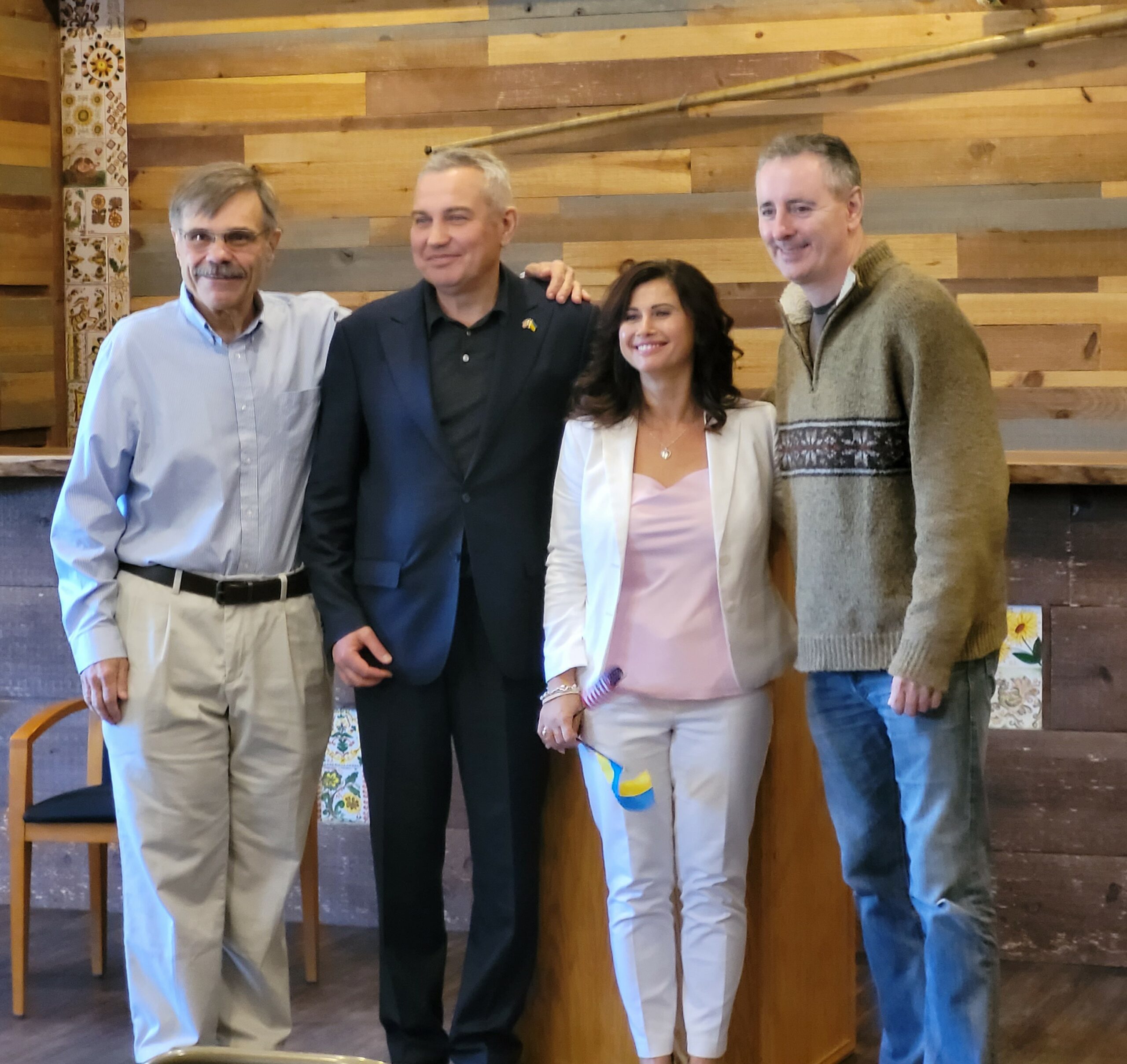Andriy Putilov is lucky to be alive.
Putilov, a Ukrainian politician, survived hardship and loss since the Russian invasion of Ukraine. After enduring 70 days of torture and abuse as a Russian political prisoner, he brought his story to the Ukrainian Cultural Center in Jenkintown recently.
Speaking to an audience with many fluent in Ukrainian and Russian, the former governor and member of Ukraine’s parliament detailed his April 9 capture and detainment for 70 days in a small, earthen cell. He had successfully moved his family out of the violence that engulfed the Kherson province in Eastern Ukraine. Still, he was captured when he returned to the family home after days of hiding in various safe apartments.
“They beat us with sticks,” Putilov said of his captors through translator Nadia Gordynksy. “Those people who watched us, they were like very elaborate Gestapo forces.”
Putilov claimed the Russians view Ukrainians as “subhumans” and marveled at their cruelty. He also claimed the invaders attempted to create and use biological weapons against the Ukrainians. Reports from the invasion, now in its eighth month, have cataloged numerous war crimes and other despicable acts.
“They hate us on a molecular level,” Putilov said of the Russians.
During his capture, Putilov underwent some profound changes. Despite serving in the national parliament, he was used to speaking a blend of Russian and Ukrainian, more familiar to Eastern Ukraine, as he did during the speech Saturday. Since the invasion, he has made an effort to improve his fluency in Ukrainian.
He also had a spiritual awakening. Eastern Ukraine is more multi-faith and less religious than the country’s western region. Putilov said he prayed for the first time on his knees while imprisoned, praying as much as 10 times a day. He credits his “faith in God” for helping him get through his captivity.
The Russians offered Putilov a position in the occupying government, based on his experience in administration, using what he described as KGB tactics to persuade him. He refused, saying he would prefer to die than aid his captors. After what Putilov called a “show trial” for actions against occupied areas of Ukraine and terrorism charges, he was finally freed as part of a prisoner exchange.
After his release, Putilov traveled to the United States, where he has family, and asked the state government for assistance. He met with Gov. Tom Wolf (D) to discuss an “agreement of friendship” and creating a sister-state relationship with Kherson. As of March, Pennsylvania has 122,000 residents of Ukrainian descent, the second highest in the U.S.
Toward the end of the talk, U.S. Rep. Brian Fitzpatrick (R-Bucks/Montgomery) stopped by. The Ukraine and Ukrainian American Caucus co-chair acknowledged that “war fatigue” has set in as the invasion has gone on. The ranking member of the Foreign Affairs subcommittee that covers Europe admitted war fatigue is slowing further aid to the resistance.
“[The invasion] goes from the front page to the back page of the news,” Fitzpatrick said. “That’s the problem. We’re trying to keep it front and center, also to educate my colleagues and the people of America why it is so important to support the people of Ukraine and protect freedom against dictatorship.”
Cultural Center president Eugene A. Luciw also discussed the importance of backing the Ukrainians. Before the invasion, the country enjoyed progress toward more technology. Many residents who left Ukraine to live in Europe are now moving back.
“[Putilov gave us] a revitalized view of our mission,” Luciw said afterward. “It is not only to sustain, which is extremely important, the approximately 12 to 13 million displaced Ukrainians in Europe and even here in the United States, but sustain them in a way that creates the steps that Ukraine will win the war and ultimately restore itself so the people have hope and prayer that they can return to their homes and live a very fruitful life.”
The Ukrainian Cultural Center has helped refugees coming to the area since the invasion started in February. Those services have been offered in addition to their regular actions in the community, from dinners to operating a credit union. Members have also sent clothing, medical items, and other supplies to embattled Ukraine.

